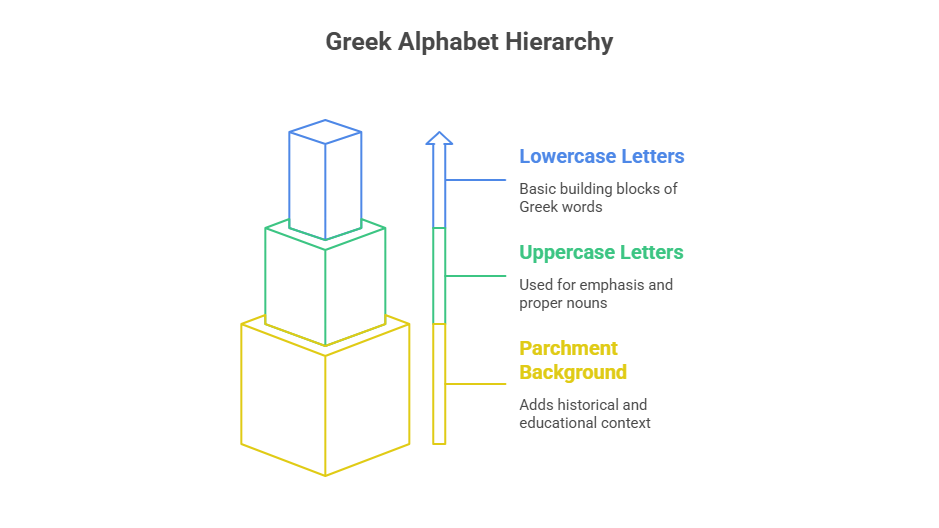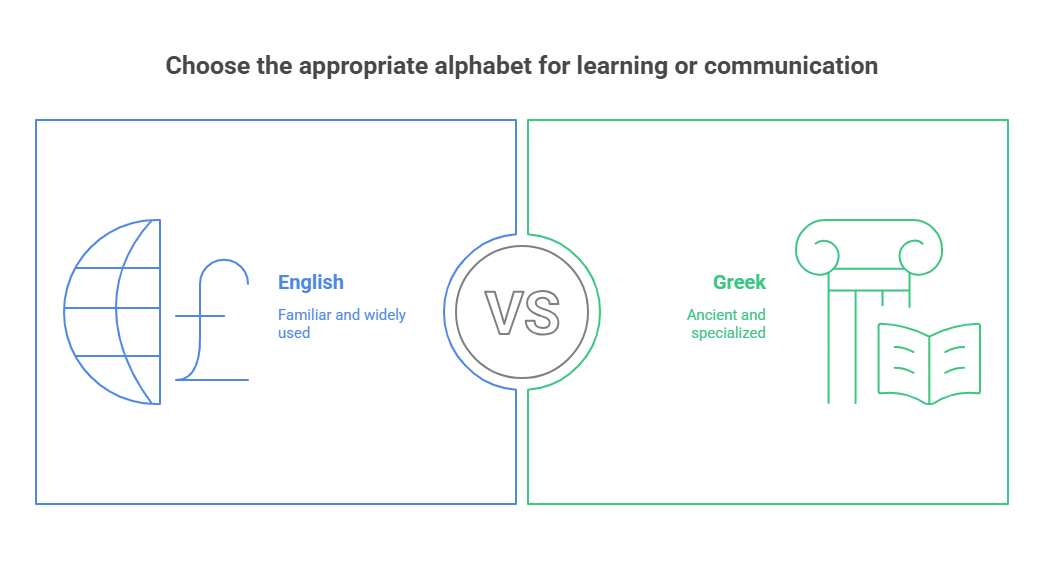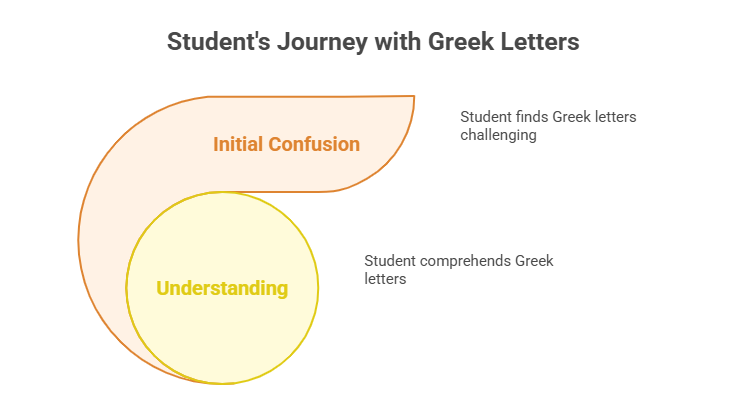If you’re a curious traveler, a seminarian, or someone who simply loves language, stepping into your first Greek Language lesson can feel like opening an old book — exciting, but a little intimidating. You might be wondering, “Is this going to be too hard?” or “Where do I even begin?” You’re not alone.
In your first class, you’ll start small. You’ll hear the sounds of the Greek alphabet, learn a few greetings, and get a feel for the rhythm of the language. No pressure to be perfect — this is just the beginning.
At LatinPerDiem, we teach Classical and Koine Greek with deep respect for its history. Our approach is shaped by scholarship but always welcoming. We believe that anyone, with the right guide and steady pace, can learn this beautiful language.
Key Takeaways
- Start with the Alphabet
Your first step is learning the Greek letters and sounds — it’s the foundation of everything else. - You Don’t Need Any Prior Knowledge
No Greek required. No grammar background needed. Just curiosity and a little time. - Speaking Out Loud Matters
Expect to listen, repeat, and speak from the first lesson — even if it feels awkward at first. - It’s Not “Too Hard” — It’s Just New
Greek has its own rhythm, but with clear steps and real examples, you’ll catch on. - Structured, Not Rushed
LatinPerDiem teaches Greek the classical way — steady, focused, and without pressure. - Common Struggles Are Normal
Confusing letters or grammar rules? Totally expected. You’re not alone.
What Will I Learn in My First Greek Language Lesson?
In your first Greek language lesson, you’ll start by learning the Greek alphabet, how to say and hear basic sounds, and practice a few simple phrases like greetings. You’ll also get a feel for Greek grammar, but don’t worry — it’s all taught step by step in plain English.
Facts & Original Research: The Real-World Value of Your First Greek Language Lesson
To strengthen your confidence in taking that first step, here’s data-backed insight into why starting Greek the right way matters — and how LatinPerDiem’s method makes a measurable difference.
Cognitive Benefits of Learning Greek
| Benefit | Backed By |
| Improved memory and focus | Harvard Medical School – Classical languages boost retention and attention span. |
| Enhanced understanding of English grammar | Linguistic Society of America – Greek roots enhance comprehension of complex English terms. |
| Sharper critical thinking | American Classical League – Students of ancient Greek score higher on logic-based assessments. |
What Makes a Greek Language Lesson Different?
A Greek language lesson isn’t just another language class — it’s an invitation into a different way of thinking. Unlike modern spoken languages, Greek has a layered structure shaped by thousands of years of history. Its alphabet, syntax, and vocabulary reflect the foundations of Western thought, from philosophy to theology to science.
At LatinPerDiem, we don’t treat Greek like a game. There’s no cartoon mascot or streak counter. Instead, we offer clarity and depth — lessons that connect the dots between sound, meaning, and structure in a way that sticks. You don’t just memorize; you understand.
Our approach is rooted in the classical tradition, led by scholars who know the value of going slow and building strong foundations. That’s why we start with what matters: pronunciation, patterns, and the joy of discovering how ancient ideas still shape modern minds.
This isn’t just about learning how to order coffee in Athens. A Greek lesson, especially the way we teach it, brings you closer to the roots of Western civilization — one word at a time.
The Greek Alphabet: The Real Starting Line
If you’re beginning a Greek language lesson, your first stop is the Greek alphabet — and that’s a good thing. It’s the true starting line, and learning it unlocks everything that follows. You’ll notice some letters look familiar (like Α and Β), while others are totally new (like Ψ or Ω). And pronunciation? That’s where it gets fun.
At LatinPerDiem, we guide you through the alphabet step by step using video-based lessons that focus on sound, clarity, and memory. You’ll hear each letter, repeat it aloud, and see it in context, all from a classical perspective that adds depth to the learning experience.
Here’s what you’ll cover in your first Greek alphabet lesson:
- Vowels: Α, Ε, Η, Ι, Ο, Υ, Ω
- Consonants: From Β to Χ — some familiar, some tricky
- Common pitfalls:
- Don’t confuse ν (nu) with a “v” — it’s actually an “n”
- Ρ (rho) looks like a “P” but sounds like an “R”
Your First Lesson – What You’ll Actually Do
A Greek language lesson with LatinPerDiem doesn’t drop you into deep water — it invites you to wade in with confidence. Here’s what you’ll actually do in that first session.
Learn the Sounds
Before you understand Greek, you’ll hear it — and that matters. The sounds of Greek have a rhythm and tone all their own, and getting familiar with them early helps everything else click. In your first lesson, you’ll listen to the instructor pronounce each letter and repeat it out loud. This is not passive learning — you’ll train your ear and your tongue from the start. Correct pronunciation builds memory and prevents confusion later.
Simple Grammar Bits
Finally, you’ll dip into light grammar. Nothing overwhelming — just the basics like how Greek nouns have gender (masculine, feminine, neuter) and what a simple sentence looks like. LatinPerDiem’s approach is structured but not rushed. No dense grammar charts, just short, clear examples that build your understanding layer by layer.
Common Struggles and Misconceptions
Many beginners worry that a Greek language lesson will be too hard, too ancient, or too academic to enjoy. That’s a myth — and we’re here to clear it up.
Yes, Greek is different, and yes, it’s old. But that doesn’t make it impossible. One of the first hurdles is alphabet anxiety — that moment when you see a letter like “ψ” and panic. But remember, you didn’t learn English overnight either. With daily exposure and good guidance, it starts making sense fast.
Another common worry is grammar overload — like cases or gendered nouns. But at LatinPerDiem, we teach grammar in bite-sized pieces, using real examples. You’re never expected to “get it all” in one go.
Greek isn’t hard. It’s just new. With the right method and a little patience, you’ll be reading, hearing, and speaking more than you thought possible — and enjoying it.
How LatinPerDiem Makes It Easier
At LatinPerDiem, we know that learning Greek can feel overwhelming — so we keep things clear, calm, and structured. Our approach is built on clarity, not clutter. No games, no gimmicks — just short, daily videos that walk you through Greek one simple step at a time.
Each lesson is bite-sized and focused. You’ll see the letter, hear it, say it, and understand how it fits into real words. From the very first video, we use a classical lens, guided by decades of teaching experience — but always in a way that’s easy to follow.
We take pride in blending academic depth with real-world accessibility. That means you don’t need to be a scholar to succeed — just curious and willing to show up.
Conclusion
Your first Greek language lesson is more than just an introduction — it’s a doorway. From day one, you’ll start learning the Greek alphabet, practicing real sounds and phrases, and exploring a language rich in history and culture.
Yes, it’s different. But with the right guidance, it’s far from impossible. Every new word is a step closer to understanding a language that shaped the world. Stick with it, even when it feels unfamiliar. Greek will soon stop feeling strange — and start sounding beautifully familiar.
Frequently Asked Question
Is Greek hard to learn for beginners?
No — it’s different, not difficult. Greek has a unique alphabet and structure, but most beginners adjust quickly with guided lessons. If you stay consistent, Greek becomes logical and even fun. At LatinPerDiem, we focus on fully clarity.
Do I need to be religious or academic to take a Greek language lesson?
Not at all. Whether you're a traveler, student, retiree, or Bible reader, Greek offers something for everyone. LatinPerDiem teaches Koine Greek, which is historically rich but made simple and practical for all learners.
Can I take a Greek language lesson online from my country?
Yes — you can learn from anywhere in the world. LatinPerDiem offers global, online video lessons, so whether you're in Canada, Nigeria, India, or Australia, you can start learning Greek today. No time zones or location barriers.
How fast will I be able to read or speak in Greek?
Most students can sound out words and recognize basic phrases within 2–4 weeks. LatinPerDiem’s method builds skills slowly and clearly — starting with alphabet mastery, then adding real, useful vocabulary.
What’s the difference between Koine Greek and modern Greek — and which should I learn?
Koine Greek is the form used in the New Testament and ancient texts. Modern Greek is spoken in Greece today. If your goal is biblical reading or classical study, Koine Greek (what we teach) is the best place to start.




